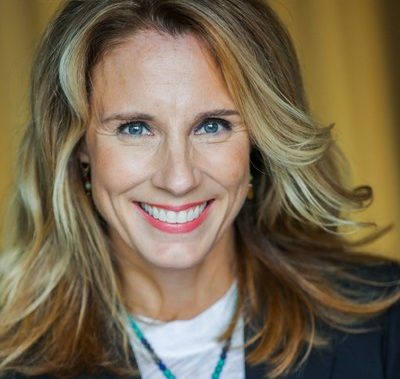Tell us about your books Unleash Your Power and The Intentional Leader and the topics it explores?
For years, I travelled the world working with teams, in every industry at every level, which were struggling to overcome challenges. Whether it was low morale, high turnover, silos, destructive culture norms, not producing targets, the themes were very similar....and it boils down to people. While working with people to shift their behaviours (many would do the same thing over and over and hope for different results), I would also observe. One way I have learned to process and support the growth of others is through my writing. In my first book, UYP, I had heard so many stories of women challenged in business as well as having my own experiences, that I decided to write a solutions book. That is really what UYP is: choose your solutions from the list, follow the steps and step into your power.
My second book The Intentional Leader was for all people struggling with how to effectively lead people. The course on LinkedIn Learning, that I created from the book, Best Practices for New People Leaders is also a perfect resource for tenured people leaders who are struggling to lead due to a lack of people radar, poor interpersonal skills, or simply having no idea how to create strong relationships with people. This course created by Madecraft has been extremely successful with over 10k viewers. All my books, articles and courses are focused on solutions that can be applied immediately.
What are the biggest contributors to low morale and ultimately turnover?
We are in the midst of people struggling in life and business. People are tired of pain, isolation and lack of connection/sense of belonging/purpose. From my experience, people are no longer tolerating leaders who lack integrity, balanced vulnerability and transparency, team focus (not me focus) and those who do not understand what it requires for them to create a safe, inclusive environment. If you are a leader and you are seeing turnover, take it as feedback to your leadership. In this way, you can begin to change it. If you blame everyone else for low morale, lack of safety, and turnover, you will continue to experience the same.
So many organisations suffer from a “nice” culture. This is where people say what their listeners want to hear because they are afraid of offending, hurting feelings or jeopardising a promotion. The upside is that people value “peace” so to speak. The downside is that they also avoid conflict or worse; people- pleasing can lead to passive-aggressive behaviour. I would say people-pleasing and nice cultures go hand in hand and they are at an epidemic level. There is so much turmoil in the world that many are left trying to keep upbeat and either tough conversations or valuable feedback is missed (or both.) Leaders benefit from having the skill set to have tough conversations without awkward energy. The discomfort is what can cause concern. The words leaders use and the energy they bring to the conversations matter. (Energy is created through the thinking they have. If they are afraid of tough conversations then likely the thinking is fear-based, negative. For example, if a leader thinks “what I say is really going to hurt their feelings”, then they will walk into that conversation with the fear energy). People can sense it...they may not be able to put their finger on it but they walk away from those meetings feeling “bad”. Leaders with clear thinking use words that are impact- focused - so their listener can hear either the message or feedback and apply it. So often leaders have limited time and thus their data gets dumped and the listener is left feeling defensive while application is more difficult to manage. We have more than enough ego, power and self-focus in business.
Leaders and their people will benefit from a radical kindness and grace approach. Kindness is different from “nice” in that it is genuine, others’ focus, without a quid pro quo.
How can you help leaders with their journey?
Now more than ever business is experiencing retention challenges. One reason leaders look to find a new role is due to poor leadership.
I have found a niche working with leaders who are interested in changing the negative perceptions people hold of them but just don’t know where to begin. Many of my clients have had 360s, attrition or a combination of the two that indicate to them they need help, and the key is, they are open to it.
I am privileged to support their growth as they deepen their awareness and shift their thinking and behaviours to support new, positive impacts and relationships. I have been told by my clients who have all turned around their impact on and with others, say I am a coach whisperer who provides a practical and tactical set of tools and understanding. I had one leader in his darkest time say he felt I was pulling him along when he could not. Creating a safe, judgement- free space for my clients to come with their honest thoughts, feelings and experiences is crucial to this work. I am a direct communicator. One client said, “I am brutally honest with soft edges.” Another said, “I bring honesty to tough and challenging circumstances but do it in a way that makes it easy to be open.”
It’s important for me to connect with my clients and really hear them so I can see the dissonance as well as the possibility through their story.
For years, before COVID, I would travel all over the world working as a group facilitator with varying sizes of organisation, specifically those who were struggling to achieve results.
High visibility/profile leaders could greatly benefit from a Shadow Coach. A shadow coach supports a leader throughout their day-to-day interactions, meetings and events where they may fail to recognize where their impact did not land as intended. The Shadow Coach is observing and relaying those observations to their client. The further up in rank you go the less REAL feedback received. Therefore, this shadow coach can provide timely, honest feedback.
One way that I have been able to support my clients is through a unique feedback report I provide them after I have spent time with their peers, directs and stakeholders to collect feedback. This has provided a direction my clients have valued as opposed to guessing where they should change (possibly changing areas that are strengths in an effort to accelerate their impact).
What are your top tips on living a happy, successful and fulfilled life?
Living a fulfilling life requires being authentic, fearless (with grace) and with love. From this foundation, identify your strengths, then inspect what makes you happy, and what would feel fulfilling. This is a good exercise to do any time one feels burnt.
I have dogs that make me get up from my desk a few times a day. I would never have known the gift they would give me when my kids could no longer take care of their animals. Those of us on video all day, or in a seat require movement to keep the oxygen circulating. Exercise and eating well supports our overall health and so does creating happiness. Living our purpose every day is the goal, even if it’s minutes or hours. There is a misnomer about living your purpose “someday.”
Another important aspect to living a happy, fulfilling life is courageously being honest in a way in which you are being authentic AND your listener is open to hearing. When we hide our truths and ‘people please’ our energy gets sucked into these areas instead of into areas that make us truly thrive.
Experiences shape our lives. I have chosen to learn and grow throughout the most challenging times in my life. Because of these experiences, I am a graceful, strong empathetic coach, leader and woman. I have had several of these throughout my life but three that I will share.
Leaders benefit from having the skill set to have tough conversa- tions without awk- ward energy. The discomfort is what can cause concern.
The first was when I was 19 years old and was awarded the Miss Maine USA title, and went to the Miss USA pageant for a month-long event that changed my life. One of the judges owned a modelling agency and asked me to move to NYC and model for her. That experience turned into a non-traditional journey to work in the corporate world. I spent many years modelling and being featured in commercials. As I entered the business world, I knew my pageant experience had to remain a secret. I realised quickly that telling people about my past would hold me back. People have judgements that they would assert and I was held back. Only in my 40s did I finally realise that the past is a part of what makes me unique and that I can stop hiding who I am.
The second is when I walked into my home with my small children while a burglary was in progress. I had little environmental awareness leading up to realising someone was in my home. I was in shock. Luckily my kids and I escaped with no harm. But that experience changed the course of my life. I felt utterly vulnerable, violated and without defence. It happened that same week my son’s karate teacher, Mr West, asked me if I would be interested in taking self-defence classes at Bryan Hawkins’ Kenpo Karate studio. That moment and choice changed the trajectory of my life starting a 10-plus-year journey which led to attaining my black belt in karate many years ago. I realised I had a choice to stay a victim or empower myself and my future. I chose the latter.
The third experience was working for a homogonous leadership team, same gender, same pedigree all of which I was not. And I was excluded and discriminated against. For years I tried everything: being nice, following everything they said and watching other women sue with no change. At some point, I realised none of it was working and I started writing. I wrote for myself and other women who may be experiencing challenges of their own. It resulted in success and women stating how much they valued from knowing they are not alone and having tools they could use to empower their positions.
The culmination of these experiences has made me more resilient, authentic and a strong person and has also afforded me an empathetic and solutions focused approach with my clients.











